Entrepreneur Profiles
Hogaru CEO Matteo Cera is on a Mission to Create 100,000 Jobs
4 September 2017
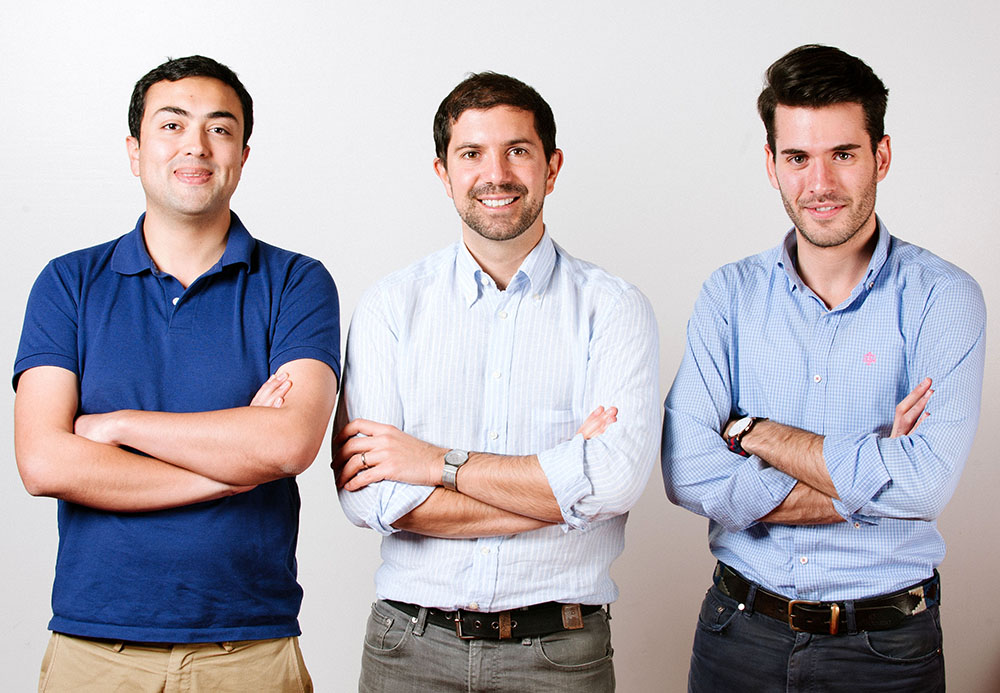
Company: Hogaru
CEO: Matteo Cera
Investors: Velum Ventures, Y Combinator, Wayra Colombia, the accelerator of Telefonica Open Future_, & Angel Investors
After participating in Y Combinator, Hogaru, a subscription cleaning service for small businesses in Colombia, is consolidating operations in Colombia, where it already operates at profitability, and eyes potential expansion markets.
In this interview with Hogaru co-founder and CEO Matteo Cera, we learn:
- Hogaru has created 500 full-time jobs in its first year, and looks at employment (over contracting) as a way to bring dignity to domestic labor.
- This model has advantages in Latin America over the US, including high urban population density, cheaper cost to acquire new clients, and a larger addressable population of cleaning professionals.
- Y Combinator was a game-changing experience in terms of establishing a network of mentors and getting access to US investors.
LAVCA: How did you start Hogaru?
Matteo Cera: I was a banker, and then a consultant for McKinsey when the financial crisis hit Europe in 2008. There were no projects to work on, so we would just stay in the office and do nothing. Latin America, on the other hand, was looking for a lot of consultants. I flew down in 2010 to do a couple of projects, and stayed in Bogotá until 2013 with McKinsey.
At the time, I had no idea what a startup was. Most of the CEOs I was consulting for were people who had actually built a business from scratch. In Latin America, there are examples of empires that were built in one or two generations because there is no competition in some verticals. And I hadn’t built anything; I was just a bigshot consultant with some “impostor syndrome.”
I spent about six months helping the founding team at Polymath Ventures launch in Bogotá before we parted ways. I called another ex-McKinsey consultant, Gonzalo Ucar Rodriguez, who had been daydreaming with about leaving McKinsey and starting something, and he joined me in Bogotá.
It took us a few months months to decide what to focus on. We both were banking guys, so we were interested in fintech and transportation. We saw a lot of services marketplaces were coming up that were connecting demand and offer with services. And unlike US services marketplaces, in Colombia, services are cheap. People of the middle class are used to have cleaners and cooks and gardeners, whereas they strive for the iPhone. It’s somewhat opposite in the US, where people have iPhones and Macs, but having a nanny is considered a luxury.
We saw a lot of services marketplaces were coming up that were connecting demand and offer with services. And unlike US services marketplaces, in Colombia, services are cheap.
At the time, not even Yellow Pages had a webpage in Colombia, so we decided to focus on building a services marketplace. Our first prototype tried to replicate what TaskRabbit and Homejoy were doing. Almost immediately, it was a lose-lose situation. If we somebody and it ended up well, the client would likely snatch the service provider from the platform. If the match was bad, we had an issue.
That’s when we meet Oscar Peña, our co-founder and CTO. Oscar is such a good data architect and software developer. He was sponsored by the government to study robotics in Japan when he was a teenager, and spent the next ten years working on robots—before robots were cool, by the way. I feel honored and humbled that I was able to convince him to join us. He is the only Colombian on the team. And he was the real entrepreneur between the three of us, because he was the only one that tried to do something before.
LAVCA: How are you funded?
Matteo Cera: We applied to Wayra Colombia and got in in April of 2014; that was our first US$50k. Carlos Castañeda, who runs Wayra Colombia, was very supportive of us. He is one of the pillars of the Colombian entrepreneurial system. He spends enormous time just knowing people, matching people, helping people. It’s amazing.
We raised another US$60k or so from angels, and about US$300k from Velum Ventures. Then we got into Y Combinator with their standard deal (which is about a 7% equity stake for US$120k).
The first month of Y Combinator, we were net profitable for the first time. We won’t stay that way, but it’s good to at least have gotten here, because most of the time, you hear about startups that were negative for 20 years. I’m sure that it makes sense for some investors, but in Latin America, it’s harder to justify that kind of burn.
LAVCA: How do you pitch a Colombian startup to Americans?
Matteo Cera: I try to educate them in some things that I believe are useful for them to better understand why our model can work. For example, most foreign investors do not know how dense Latin American cities are: There are 120 million people in the top twenty cities, compared to 30 million in the top 20 American cities. In other words, Latin American cities are four times denser.
In our vertical, investors are surprised to learn there are over 30 million housekeepers in Latin America. That’s something like 5% of the total population. If you translated that to the US, it would be something like 15 million housekeepers. It’s a much bigger pool of talent and therefore a larger potential opportunity in Latin America.
In our vertical, investors are surprised to learn there are over 30 million housekeepers in Latin America. That’s something like 5% of the total population…It’s a much bigger pool of talent and therefore a larger potential opportunity in Latin America.
It’s also a lot cheaper to make this business work in Latin America. Homejoy, for example, raised US$38m dollars from Google Ventures, Redpoint Ventures and others. They were acquiring a cleaner for hundreds of dollars via search engine marketing, while it costs us seven or eight dollars.
The keyword “office cleaning” in Bogota costs us US$0.12; in the US it’s closer to US$22. Assuming the same conversion rate, we are talking about an almost 200x cheaper price. Considering our actual conversion rate is about 4% of visitors to clients, Hogaru makes the cost of acquisition up in the very first purchase.
LAVCA: How did you narrow down from a marketplace with a broad offering of services, to focus on cleaning services?
Matteo Cera: We spent all of 2014 trying to build a service marketplace for any kind of home service, like cleaners, nannies, plumbers, and electricians. Cleaning was, by far, the most popular category: Nine percent of our providers were cleaners, but they received 55% of the requests.
Clients were asking us questions like, “You matched me with this cleaning professional, but then what happens? How do I contract her? How do I pay her? What’s right to pay her? How do I pay her social security? Can you do it for me?” It felt like we were half a marketplace and half a lawyer’s firm.
So we decided to do an experiment, hired a few cleaners full time, and split their calendars between clients. The client is happy because they always receive the same cleaning professional in their house. The cleaner does not have an an incentive to strike a deal directly with the client because she has a full-time job with us, whereas the client can only offer her work twice a week.
LAVCA: Popular wisdom for startups is to avoid hiring employees, and to go the contractor route. Walk us through the decision to hire domestic professionals as Hogaru employees.
Matteo Cera: If you build out a matrix for where recurrence of work meets the complexity or intimacy of the work, we are in the upper right quadrant: Hogaru is very recurrent; clients average 2.9 cleaning visits per week. And it’s intimate work. You might not care who your Uber driver is, but your cleaner sees your underwear and knows where you keep your money. So in this quadrant, we feel that you need to hire people. It creates a switching cost for anyone to strike a deal directly.
It also avoids legal issues down the road. If we kept people as contractors, If we keep them as contractors, sooner or later they will say, “Hey, we’re not contractors because you’re telling us where to go, at what time…”, like Uber drivers.
LAVCA: How many cleaning professionals have you hired as employees?
Matteo Cera: We crossed the milestone of 500 formal jobs created, plus another almost 40 jobs on our administrative team. In terms of the landscape of domestic laborers in Colombia, there are about 750,000.
LAVCA: How much do you pay your employees?
Matteo Cera: We pay about 8% above minimum wage. 60% of Colombians live off minimum wage. So we pay more than that, and we offer health insurance, as well as benefits if they show up punctually, if they get good evaluations. They get access to a free smartphone and free data plan while working with us.
One of the things that I really like about the retention strategy is that we are also giving interest-free, short-term “emergency” loans to our employees. Considering that we control their wage, we have their next paycheck as well as their severance paycheck as a collateral.
We created a way from their app to say, “I need money.” It’s a very simple algorithm that checks when when their next paycheck is due, so we can extend a free loan immediately. We already issued over 1,500 loans and had 0% default, considering the loans are collateralized with their salary paycheck.
LAVCA: MetLife Foundation published findings from interviews with 185 low-income families in Mexico and other emerging markets that point to the need for income-smoothing solutions like this.
Matteo Cera: This is important for people living on the line of poverty, without a source of savings. We did a study on how much they were earning before as freelancers, and found that there are times when they have stable work, and then times when they do not earn anything. We did a simulation of that person’s income over a year and calculated a 26% improvement with Hogaru over the money that they were making before, mainly because of the stability of the paycheck.
That’s the opportunity. But currently, about 90% of domestic workers in Colombia are paid under the table, without any health insurance, pension or labor protections.
LAVCA: Brazil passed legislation in 2015 to regulate domestic labor and improve working conditions. How does it work in Colombia?
Matteo Cera: Colombia did the same two years ago, and we are riding that wave of formalization. But it will take time. Companies and homeowners are starting to google about this, and they find our service. Our value proposition is you do not have to worry about paying them directly: You just pay us and we will take care of it. We’ve even had examples where people find us and bring their current relationship with their housekeeper onto Hogaru.
Our value proposition is you do not have to worry about paying them directly: You just pay us and we will take care of it. We’ve even had examples where people find us and bring their current relationship with their housekeeper onto Hogaru.
On a scale of 100, if 100 is the price of using Hogaru, about 84 is what they would pay if they enrolled her in social security and everything, and 65 is what they pay would pay under the table. We are more expensive, but we are finding that people are are happy to pay a little bit more for the peace of mind.
LAVCA: Hogaru recently pivoted from B2C to B2B to focus on providing cleaning services to small businesses, versus individual homeowners. Why the pivot, and how did you pitch the opportunity to investors?
Matteo Cera: We pivoted about six months ago to service PyMEs (SMEs). One reason is that homes are just more demanding; cleaners are just happier to work in offices because it’s less humiliating and less stressful.
It’s also better business for us. One of the key numbers that we track is the lifetime value of a client versus the cost of acquisition of a client. For B2B clients, the lifetime value is about 31x the cost of acquisition. For domestic/B2C clients, it’s about 9x.
For B2B clients, the lifetime value is about 31x the cost of acquisition. For domestic/B2C clients, it’s about 9x.
In Colombia, there are about 600,000 SMBs. If you look at the top 25 cities in terms of population density in Latin America, there are approximately 6.1 million of these type of small and medium size businesses.
LAVCA: You’re in Columbia now, but you’re targeting urban centers in Latin America. What are your expansion plans?
Matteo Cera: We currently serve approximately 2,800 clients per month with a team of over 500 employees, and we operate in Bogotá, Medellin, and Cali. In each city, we have an office with recruiters and an office manager.
In terms of expanding, we are now looking at a few different countries, including LatAm (Mexico, Argentina, Chile, and Peru) and Spain. Mexico has at least four cities that are of interest and is likely to be our first target. Argentina and Chile are a little farther away in terms of the formalization of domestic labor. Spain has very few big cities, and it’s more formalized than LatAm. It’s just a matter of deciding the sequence.
LAVCA: Aliada.mx is doing some similar work in Mexico. Do you consider them competition to beat, or allies that are helping to push this new kind of contractual behavior?
Matteo Cera: Hogaru and Aliada started at around the same time. I think Aliada is doing great, and they have a solid team. There a are a few differences in the model in that they contract versus hire, and focus on B2C.
While they are competitors in the narrow sense of the definition, we think we are two forces that can work together. Both of our brands will benefit if more people believe that it’s not fair to pay people under the table and to exploit them for 15-hour days. And there is more than enough room for two players. Hogaru has 500 employees; in Mexico alone, there are 1 million domestic workers.
Both our brands [Hogaru and Aliada] will benefit if more people believe that it’s not fair to pay people under the table and to exploit them for 15-hour days.
LAVCA: In terms of global references, are there services or startups that you think are doing well?
Matteo Cera: I have a lot of admiration for Managed by Q, which also employs their workers. Our YC pitch was, “We are Managed by Q for Latin America,” just to make people a bit more familiar with what we do. We like the fact that, for the first time in the US, a startup decided to start with employment instead of contractors.
Another startup I like is Honor, which does out-of-home care with employees.
LAVCA: You just finished Y Combinator. How did YC help you refine or broaden your perspective as a startup CEO?
Matteo Cera: YC is a game-changing experience. The biggest benefit for us has been the network of alumni, from your batch and all the previous batches of startups. You can go from having one mentor to having 2,000 people you can reach out to, who are all at the top of what they do. If you say you are another YC fellow, the response is amazing.
These are all people that have built stuff at a global scale, so it’s definitely something that changed our way of thinking. We went from saying, “How can we be profitable in Colombia?” to, “How can we build the largest facility management company in Latin America? How can we create 100,000 jobs?”
We had a great discussion with [YC President] Sam Altman. He likes our mission of creating 100,000 jobs in the next ten years for a vulnerable population. We agree with his point of view, which is something in the lines of, “Software will eat the world. We need tech companies like Hogaru that create good jobs for people who will not be able to ride this wave of socio-economic progress.”
LAVCA: Beyond thinking bigger, what other insights did you get out of YC?
Matteo Cera: The importance of taking care of us as a team. That makes you understand how important it is to have team relationships that are alive and healthy.
The other point is to realize we are not alone. When you’re an entrepreneur in a developing market like Colombia, you feel that the world is falling on you most of the days. Now we can reach out to people in the YC network who had similar problems and find a solution. That’s really reinvigorating. It’s like an oxygen mask.
You may be interested in...
-
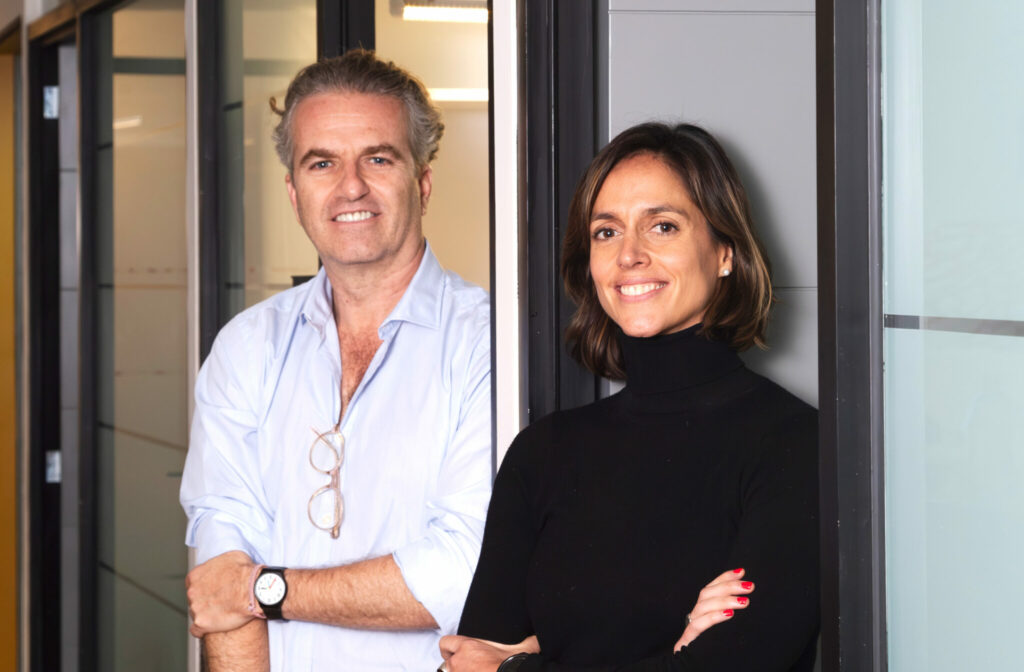
Is AI a Thing in Latin America? In Conversation with Hi Ventures
LAVCA sits down with Hi Venture to discuss their evolving thesis and vision for...
-
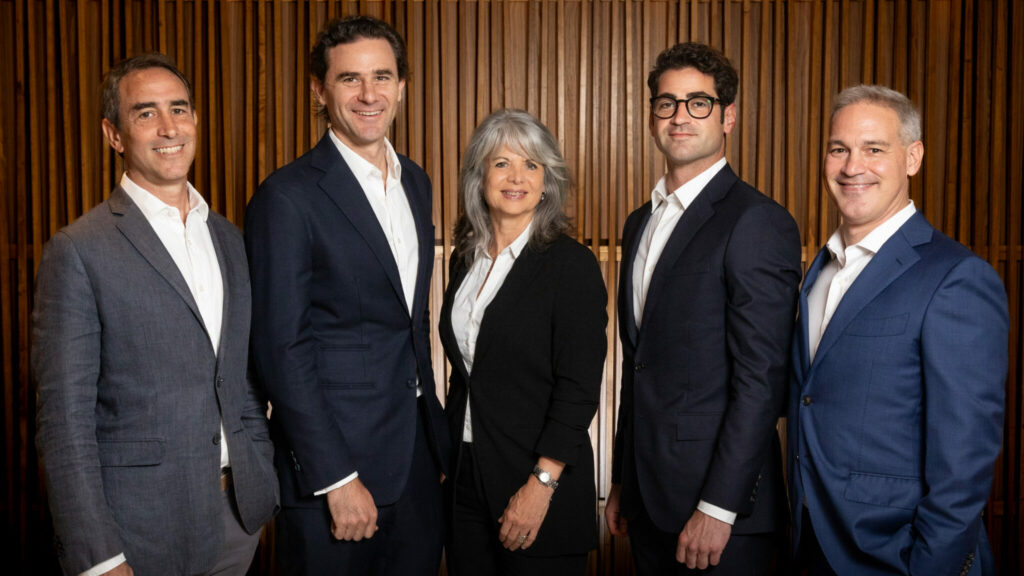
The Future of B2B Startup Investing in LatAm: In Conversation with NXTP
NXTP Ventures recently reached a USD98m final close for NXTP Fund III, its third...
-
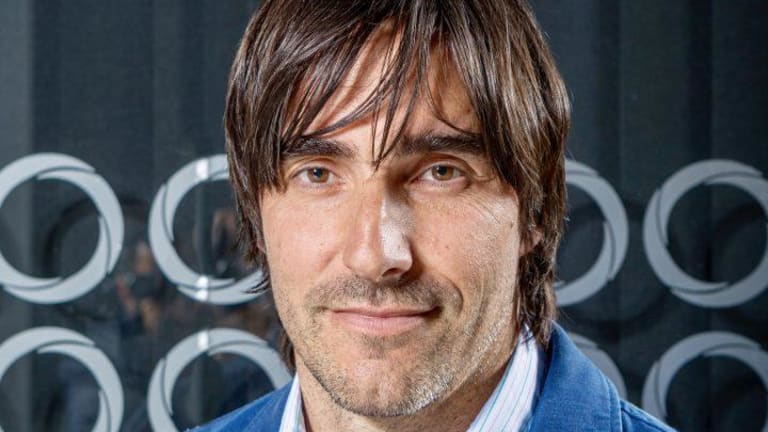
A 20-Year Journey: An Interview with Technisys CEO Miguel Santos
Company: Technisys Investors: KASZEK, Dalus Capital, Riverwood Capital Interview...
-
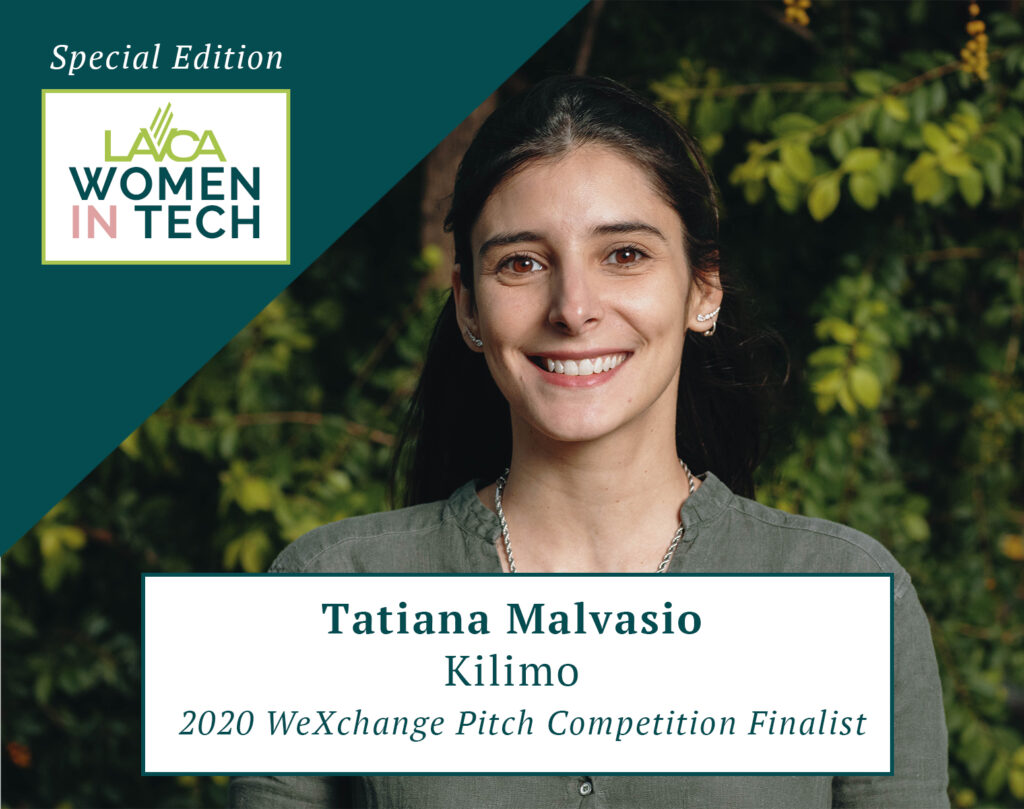
Satellite Analytics & Irrigation Systems: Interview with Kilimo COO Tatiana Malvasio
Company: Kilimo Investors: NXTP Ventures, Alaya Capital, The Yield Lab, Xpand...